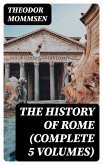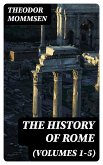Livy's "The History of Rome" (Volumes 1-4) offers a sweeping narrative that chronicles the rise and fall of Rome from its legendary foundation through the early republic. Written in a rich, eloquent Latin prose, Livy's work is characterized by its moral reflection and engaging storytelling, drawing on both historical and mythological elements. His vivid descriptions and detailed accounts invite readers into the heart of Roman civilization, providing insights into its political, social, and military evolution while situating the narrative within the broader framework of Mediterranean history and Roman values. Titus Livius, known as Livy, was born in 59 BCE in Patavium (modern Padua, Italy). His life coincided with the turbulent transition from the Roman Republic to the Empire, experiences that profoundly influenced his perspective. Writing during the reign of Emperor Augustus, Livy sought to instill a sense of Roman identity and virtue amidst the backdrop of political upheaval, reflecting both nostalgia for the Republic's values and an understanding of contemporary shifts. This monumental work is essential for readers interested in classical history and the foundations of Western civilization. Livy's eloquent prose and keen analytical insights not only entertain but also provoke deep reflections on human nature and governance. "The History of Rome" remains a vital source for scholars and enthusiasts alike, illuminating the struggles and triumphs of one of history's greatest civilizations.
Dieser Download kann aus rechtlichen Gründen nur mit Rechnungsadresse in A, B, BG, CY, CZ, D, DK, EW, E, FIN, F, GR, H, IRL, I, LT, L, LR, M, NL, PL, P, R, S, SLO, SK ausgeliefert werden.









